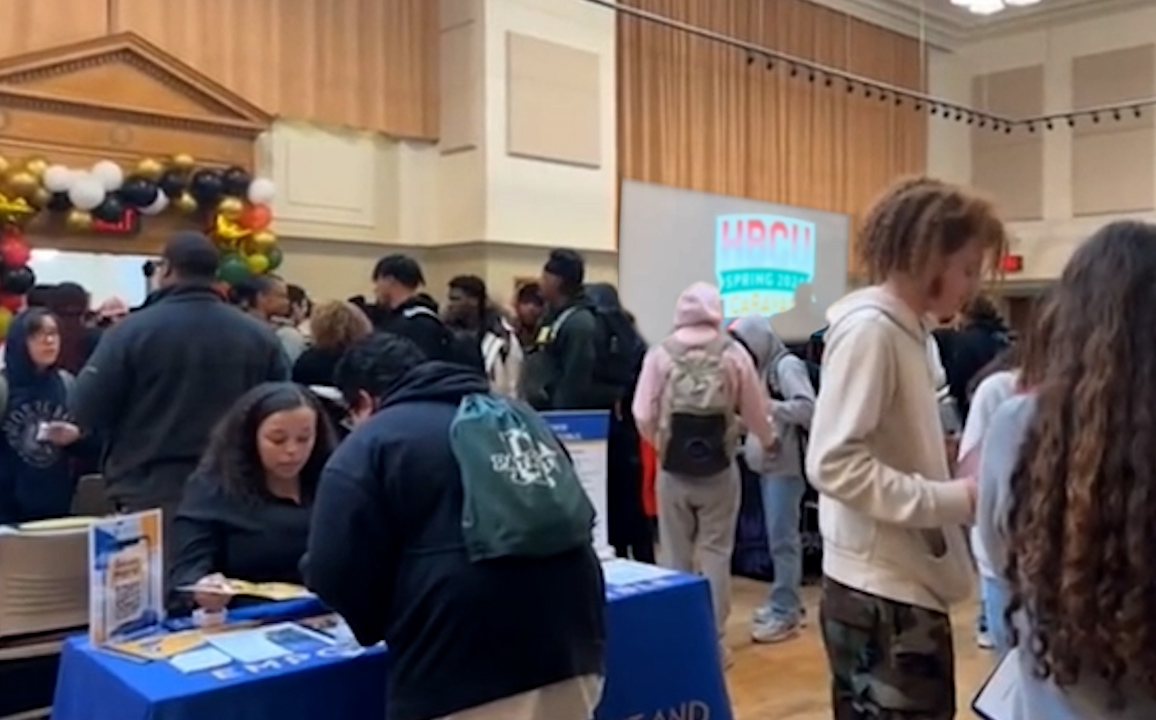The economic crisis is a complicated concept with many difficult words for the laymen; GDP, subprime lending, deregulation, foreclosure, credit crunch, and many other words can turn off the average American from even attempting to understand the economic crisis at hand.
Ironically, this is almost the same apathy that has caused the economies downturn in the first place. So to the laymen, I offer this concise explanation.
When banks cannot pay back loans to investment banks, houses must go into default because most individuals cannot pay off home loans in one lump sum.
This compounded with an extreme excess of imports and an extreme decrease in exports, loans taken out by America from China, the devaluing of the dollar due to overprinting of dollar bills, and grand polarization of the Republicans and Democrats, the economy has fallen into great duress that will burden the Generation Y (those born in the late 80s and early 90s) and future generations who have not yet come of age.
It began with Black Monday. Monday, October 19, 1987, when the stock markets around the globe crashed; the American stock market fell 23%, the UK market fell 26% and Hong Kong dropped 45% (along with many other countries around the world).
This was the largest one-day percentage drop in stock market history. It took years to recover the losses.
This drop was due to program trading (defined by NYSE as “a wide range of portfolio trading strategies involving the purchase or sale of 15 or more stocks having a total market value of $1 million or more”), improper valuations IE overvaluation, and behavioral economics (decisions made by the public on whether or not to buy or sell stocks, bonds, commodities, etc).
Essentially the stock market crashes due to too much stock being sold at once, leaving companies with too little capital to continue business.
The American government instituted a policy that allowed the government to stop trading should the stock market drop below 450 points. Flash-forward to September 16, 2008, when the government stopped trading due to the stock market dropping below 450 points.
The Lehman Brothers Investment Bank began investing years ago into the mortgage industry (a “safe investment” because even if the Lehman Brothers company went under, the investors money would still be safe with a secured entity). Two of these companies were Fannie May and Freddie Mac. Lenders had started “subprime lending” (lending money to “risky” borrowers not normally qualified to purchase a house) which came with low interest rates for the first two years then a sharp increase in rates. This allowed risky borrowers to purchase homes, construction companies to rake cash, and realtors to wash themselves in profits.
That is, until 2006, when the borrowers were not able to pay back the loans at the high interest rates, only the housing market should have been affected, however, due to the fact that lenders had sold the debt to other banks worldwide, a convoluted financial crisis occurred.
In 2007, over one million housing properties went into foreclosure activity. People could not pay off their debt to banks that could not pay off their debt to foreign investors who could not pay off their debt to their investors and so on.
A “credit crunch” ensued (a sudden reduction of availability of loans and the sudden increase in the cost of attaining loans from a bank or lend institution). This led to little liquidity (money) swirling around the economy because most loans were too risky.
By mid 2008, banks worldwide had lost approximately $435. This combined with the American war in Iraq (any money spent on the war is an automatic loss to the economy because it is not an investment or recovered), the major decrease in American exports and the major increase in foreign imports (namely, China) caused the American economy to lose money to foreign economies.
When money is spent on foreign goods, the money leaves the American economy and is transplanted into the foreign economy (lately, most likely China).
Lehman Brothers went into financial crisis and collapsed. AIG (the American Investors Group, another large investment bank) went from a $40 on September 15 to a $60+ billion deficit on September 16.
The Fed could have stopped this by bailing out Lehman Brothers before the collapse.
Instead of bailing out Lehman for $20 billion, the taxpayers now had to bail out AIG for over $85 billion.
This decision is made by approval from Congress as well as many banking committees in congress. Chairman of the Federal Reserve Ben Bernanke essential wrote a blank check to do as he saw fit to save the investment banks (specifically Baer Sterns Investment Bank, which also defaulted).
Eventually, debts increased to over $700 billion dollars. Government infighting and party blaming caused the House and Senate from writing a proper and timely bailout plan until earlier this month.
Economists say that there are basically five things to do to save the economy. The government must continue to spend money in the American economy by spending on infrastructure and unemployment insurance.
The government must deal directly with homeowners and refinance home loans. Small businesses must be given a break; central banks must give small businesses loans to keep money in the American economy.
The government should buy securities and set standard prices; funds from the $700 billion dollar rescue bill to buy mortgage-backed securities at prices that simultaneously allow banks to survive and yet not squander taxpayer’s money.



